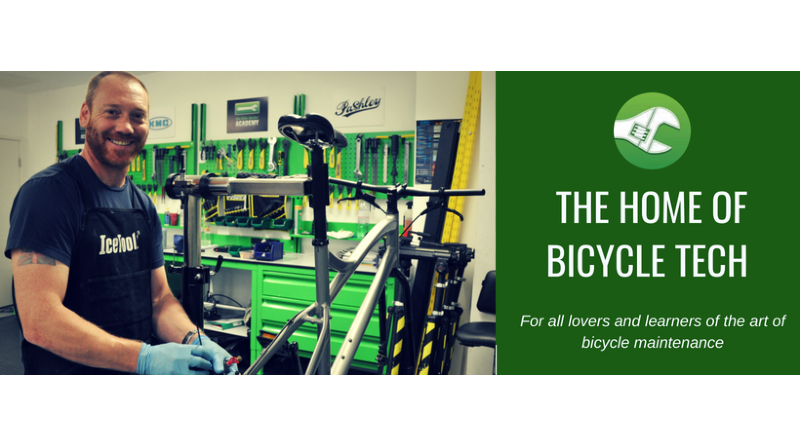All systems go at Cycle Systems Academy
It is no surprise that the Covid induced bike boom of 2020 has left training workshops with an impressive influx in bookings. Whether it is mechanics wanting essential retraining or newbies wanting to dive headfirst into the industry, Cycle Systems Academy has seen it all.
Sean Lally, Director at Cycle Systems Academy explains: “We have started to get a tremendous number of bookings and that’s largely private bookings from people who are not currently in the cycle trade who want to enter the industry. As of October, we are fully booked until May next year and the demand doesn’t seem to be slowing down.”
With the training provider’s most popular courses, the professional level 2 certificate and professional level 3 diploma, full for the foreseeable future, Cycle Systems has had to streamline its courses in order to meet demand.
Lally puts the shift in mass demand for bike mechanics down to the economic reality many have faced during the coronavirus period. “These are individuals who are lifelong passionate cyclists who perhaps have always had the dream to open or work in a bicycle business and now their hand is being forced,” says Lally. “This combined with government support as some people have had grants and payouts, means that they now have both the time, money and motivation to take the leap.”
Over the years, Cycle Systems Academy has not only trained passionate cyclists wanting to enter the trade but has played a major part in training a number of social enterprises such as London Bike Kitchen, and The Bike Project.
When asked what incentives exist for bike shops to get staff trained, Lally responded: “At cycle systems academy, bike shops have always been one of our worst customers to be perfectly honest. There was a time about ten years ago when they could do a level three course for £250 pounds when the full commercial value was £2,400 and the take up was there, but relatively low. I think for a lot of bike shops, they simply need their mechanics in the workshop, and they can’t have the mechanics away for two weeks and maybe the margins are a bit tight.”
“I think within the bike industry, some of the shop owners might find that both the money and time needed for staff to be trained to be difficult unless it is 100% funded. By providing the marketplace with a lot of skilled mechanics, I hope we are supporting the shops by them having accessed to trained staff without them having to train them.”
When it comes to maximising efficiency and profitability in the workshop during an uncertain time ahead, Lally discusses the need to maintain professionalism within the workshop and to recognise the skills required to be a successful bicycle mechanic. These, he says, open the door to charging prices that a shop can pay a good wage on.
“Any sort of professional training, whether it’s with us or another professional training academy, what we are training the mechanics is how to run a workshop in a professional and efficient way. Those basic standards are incredibly important” claims Lally.
When discussing whether a wage assessment is needed within the industry, Lally discusses again, the need for people both inside and outside the industry to recognise the skill required to be a bike mechanic and to ensure that a mechanics salary and job package that reflects this.
“Historically we have lost a lot of the good mechanics as they have gone on to other industries once they have a family and want to buy a house etc. I think not only training and qualifications, but constant re-training and constant professional development is not only attractive but critical- and that doesn’t even have to cost money,” says Lally.
As an educator and trainer of mechanics himself, Lally claims that one of his most important roles and roles of his teachers is to continue professional development in order to provide an adequate skill level to Cycle Systems customers.
“Cycle Systems Academy, it’s not just a name – we are teaching the systems of the professional workshop. So that its spotless, every single tool is in the right place, that tool is clean, and that tool is in good repair.
“I am learning every single month of every single year. If people are static with their skill level, what is going to happen is that they can’t provide an adequate skill level to their customers and most importantly, there may be a safety issue as well.”
As 2020 draws to a close, Cycle Systems Academy tells CI.N of its plans for 2021, including developing its membership options to allow for more regular training and continued professional development within the industry.
“With Cycle Systems, we are continuing the professional training and we are developing our membership in a bit more depth. This is a membership for our graduates and soon to be available to anyone. This is an online training, continuing professional development. The idea with the membership is that we are training people on a regular basis, all of the latest suspension technology, all of the latest groupset and wheel technology and we also have lots of great interviews with people from the industry.”
Cycle Systems Academy will also continue to work in close partnership with SRAM technical University to ensure students have access to the very latest equipment. This comes after SRAM’s realisation that in order for their products to have a good reputation with the consumer world, they have to have a dealer base who are incredibly skilled and knowledgeable about those products.
In addition, the Cycle Systems’ SRAM technical training which would often happen on site at a bike shop, is now being run remotely. “It’s incredibly exciting and it’s a new way of teaching and a very new partnership between industry and educators. It means if people are doing a training course with us, they not only have access to the latest equipment, but the best teaching as well,” says Lally.



